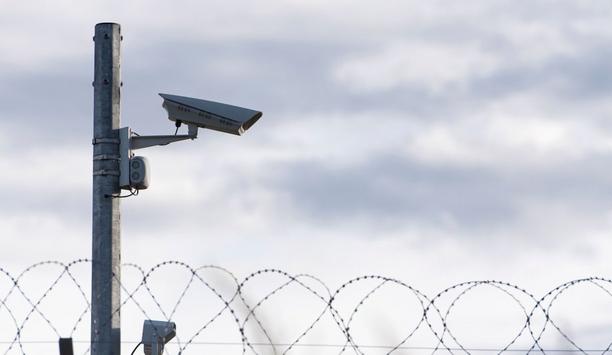 |
The nature of crime in general – and particularly types of theft – are changing. Craig Mackey, Deputy Commissioner of London’s Metropolitan Police Service, says falling rates of conventional “property” crime are being of offset by an increase in computer-related crimes.
Fall in “property” crime rate
Mackey stressed that there has been no “magic bullet” responsible for the pronounced fall in burglaries and other property crimes. Theft of, say, a flat-screen television from a house in Brent [a north-west London borough] by a prototypical thief is no longer representative of the standard challenge facing the Met, he notes. Rather, sending out 10,000 phishing emails is more likely to be the operational method of the average small-time criminal.
In 2014, burglaries in London fell by 8% (7,500 incidents) to their lowest level in London since 1974. (This figure was not quoted specifically by Mackey but has been reported widely by major news sources including the BBC.)
Deputy Commissioner Mackey speculated on the typical day of an employee in London and observed that they are probably far more vulnerable to criminals during their leisure computing time once they have returned to the suburbs than they are while travelling to their place of work |
Deputy Commissioner at Cass Business School
Addressing MBA students at Cass Business School, City University London, Deputy Commissioner Mackey asked how many of the audience had an iPhone 6 in their pocket. Seeing a healthy show of hands, he pointed out that now Apple has enabled a remote “Kill Switch” facility for its latest release. The phones now have little intrinsic worth when stolen. What thieves really value is the data they can extract from a mobile phone in the first vital minutes before it is reported missing.
The second most senior British chief police officer, Deputy Commissioner Mackey addressed the MBA students on current trends in policing. His wide-ranging talk covered many aspects of security technology as it relates to modern policing. His lecture at the London Transport Museum was set against a backdrop of a city where people speak 300 languages and are bucking national trends insofar as the population is getting younger.
For the evolving Met, “new policing” is synonymous with new types of crime that increasingly take place on the Internet and can be anything from online harassment to fraud |
Internet-related crime
Deputy Commissioner Mackey speculated on the typical day of an employee in London and observed that they are probably far more vulnerable to criminals during their leisure computing time once they have returned to the suburbs than they are while travelling to their place of work. He noted with concern that people unthinkingly share information on Facebook that they would hesitate to share with one of his officers. For the evolving Met, “new policing” is synonymous with new types of crime that increasingly take place on the Internet and can be anything from online harassment to fraud.
Better police support through refurbished Met premises
SourceSecurity.com (with justification) speculated gloomily about every conceivable physical threat to London during the 2012 Olympics. The fact is that the Met, aided by regional police forces and the army, delivered a spectacularly successful Games to the capital and the rest of the world. Just as the Olympic sites have continued as sporting and residential legacies for Londoners, the Metropolitan Police Service is seeking to evaluate and change the usage of its own real estate.
"Policing can only have legitimacy if it enjoys the trust of the community, and we’re working with the Royal Society of Arts to help us move forward in terms of talking to stakeholders" |
The deputy commissioner described how the service’s properties are being modified in line with modern requirements and explained how a third of the square footage of police premises will be released since many of them “have more to do with Peel than a strategic plan.” The reference to Sir Robert Peel may have been lost on Mackey’s audience since most of these high-achieving MBA students were under 30 and resembled a mass audition for the British (and US) reality TV show “The Apprentice.” Twice a prime minister during the 19th century, Peel founded the modern police force and his name survives in the antiquated slang “Peeler” for a policeman.
Mackey’s history lesson had a point. He was at pains to show that police premises will either be refurbished so that they are better designed places of work for staff and more suitable places for the public to visit, or they will be returned to the property market with the capital being reinvested into technology that better reflects the challenges faced by a modern police force. In this way, the deputy commissioner argued (credibly) that cuts of £800m to a £3.5bn budget over the next four years will not be at the expense of front-line staff whose numbers will in fact increase from 63 to 74 percent of total employees. (The Met is one of the few police forces worldwide to be increasing its presence on the street.) And business support will be squeezed from 26 to 15 percent of wage bills. The deputy commissioner took evident pride in being able to tell his audience that even in a time of spending austerity, London can make a credible claim to be the safest major city in the world.
He said: “We talk about policing as part of the economic development of London. People thinking of relocating here will ask: ‘How safe is it? How tolerant is it of business and how inclusive is it?’ With fewer senior managers and supervisors in the force, we see a culture where there is less and less physical reliance on front desks and counters for getting hold of police support. We offer this service but in reality it isn’t used very much, and a more technological approach is better suited to putting people through to interpreters for any of the 300 languages I’ve mentioned. Policing can only have legitimacy if it enjoys the trust of the community, and we’re working with the Royal Society of Arts to help us move forward in terms of talking to stakeholders. Outside of the Ministry of Defence and the National Health Service, this is likely to be the biggest [post UK general election in May] change programme. It would be an organisational challenge for anybody.”









































